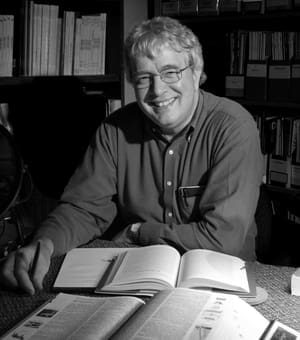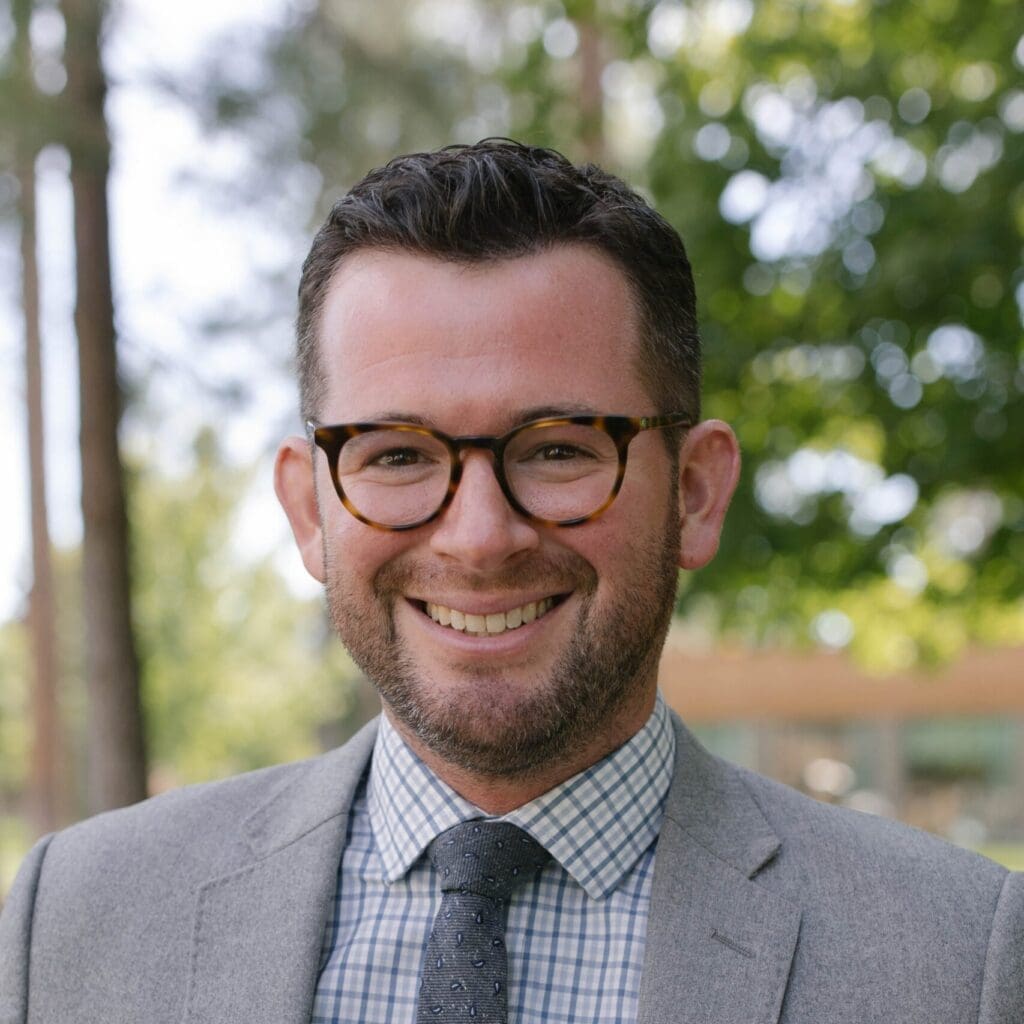In the dreary busy-ness of February and March, when the obligations of school and work seem to eat up every second, and shortened days seem to sap our energy, lots of us make a vow: “This summer I’m going to read _____!” We asked some of our favourite authors and friends to tell us what they’re diving into this summer.
We’d love to hear from you, too: What are you reading this summer? Let us know in the comments section!
—James K.A. Smith, Editor
 |
Ken Myers is the longtime host of the inimitable and invaluable audio magazine, Mars Hill Audio:
This summer, I’m planning to read several things addressing the question of faith and reason. I’m about halfway through D. C. Schindler’s The Catholicity of Reason, which has a wonderful chapter on the relationship between imagination and reason (“The Iconoclasm of the Intellect in Early Modernity,” said iconoclasm referring to the destruction of images/imagination in the modern conception of reason). Now that I think about it, I’m as interested in the question of imagination and reason as I am the (closely related) question of faith and reason. I’m also halfway through Mark Johnson’s The Meaning of the Body: Aesthetics of Human Understanding (commended in Imagining the Kingdom).
Next up is James Peters’s The Logic of the Heart: Augustine, Pascal, and the Rationality of Faith. I skimmed this when it came out in 2009, but I want to comb it more carefully. Along with that is John Paul II’s Fides et Ratio, along with some commentaries on it. If I have time, a banged-up copy of Jacques Maritain’s The Range of Reason recently arrived in the mail from a used bookstore. When this book was published in the early 1950s, the publisher saw fit to include this summary on the front cover: “Reason can know the universality of being, and is perfected, not destroyed, by faith. In discussing a variety of metaphysical and moral problems, the author stresses the amplitude of the range of reason.”
For bedtime reading right now, I’m about a third of the way through Robertson Davies’s Tempest-Tost, the first book in the Salterton trilogy. This book has the disadvantage of having so many well-crafted paragraphs that I am constantly tempted to interrupt my wife’s reading with excerpts from my own. I hope to follow this with the other two books in the trilogy. Other fiction I hope to get to this summer includes the next in the Patrick O’Brian Aubrey/Maturin volumes (Treason’s Harbour). I have been pacing through these very slowly (about one every eighteen months), knowing that there is a limited number of them and not wishing to get to the end. Some have been re-read, and almost all have been listened to (the readings by Patrick Tull are splendid) after reading the books myself. Finally there’s Ian Rankin’s Standing in Another Man’s Grave, featuring the return of my favourite Edinburgh detective, John Rebus. “In religion, he might be more Pessimisterian than Presbyterian, but in some things John Rebus still clung to faith. Faith and hope.”
 |
Meg Jenista serves as pastor at The Washington DC Christian Reformed Church:
Up on tip-toe, concentration etched on your furrowed brow while still-chubby five-year-old fingers scrawl a name in all-caps on your very first library card. The librarian laminates your treasure, handing it to you still warm from the presses as you reward her with the satisfied grin of a reader. After years of access to an academic library and a few years of profligate spending on amazon.com, I am the proud owner of a library card again. The process is a bit different now, all computerized and new-fangled, but the satisfied grin of the reader remains.
Though I know better, I’ve always found it difficult to justify buying new and untested fiction. What if I waste money on a story I don’t like? I don’t know why nonfiction isn’t subjected to the same exacting standard, though I suspect Max Weber’s notion of a Protestant predilection is somewhere here to blame. At any rate, at the library, there is no shame in trying a novel and, if it doesn’t “take,” returning it with the others and no one is the wiser. But, if the story does what it is meant to do, there is some hand-me-down truth of the human condition awaiting the effort.
This summer, with my library card in hand, I’ve learned a thing or two about life. The Fault in Our Stars overcame my wariness of melodrama with real, human pathos. I will own to enjoying a dabble in the shallows of “chick lit” only to discover commendable undertow even in the unlikely waters of Emily Giffin. Julian Fellowes’s (screenwriter of Downton Abbey) novel, Past Imperfect, engulfed me in the resolution of a life’s unfinished business. Tom Rachman’s The Imperfectionists reminded me that real life is usually stranger than youthful idealism might allow, and Sue Monk Kidd’s newest novel The Invention of Wings invites us all to “err on the side of audacity.”
In his book, Reading for Preaching, Cornelius Plantinga Jr. writes, “The Holy Spirit sows truth promiscuously, and the searching preacher is likely to find it in some unlikely places.” Fellow preachers, if you must search the likely places, I can do no better than commend to you Christopher Smith and John Pattison’s 2014 work, Slow Church: Cultivating Community in the Patient Way of Jesus. If you want to lie in a hammock or sit on the beach this summer reading something and calling it “work,” please let it be this book. Or you may well decide to join me in “erring audaciously” in the direction of your local den of “promiscuous truth,” with a newly minted library card in hand and that slow, summer, satisfied grin of a reader spreading across your face.
 |
David Naugle is chair and professor of philosophy at Dallas Baptist University:
Since all the books I’m reading are new, I’m sure I will have disappointed C. S. Lewis who once advised: “It is a good rule, after reading a new book, never to allow yourself another new one till you have read an old one in between. If that is too much for you, you should at least read one old one to every three new ones” (“On the Reading of Old Books”). Nevertheless, here’s what my summer of reading looks like:
Joseph Hinman, The Trace of God: A Rational Warrant for Belief (Grand Viaduct 2014). Truth in advertising: Joseph (Joe) was a student of mine at the University of Texas at Arlington back in the early 1980s. I even remember a paper he wrote in my class on the immanence and transcendence of God, calling for both in a balanced understanding. So I may be a bit biased in my recommendation of his new book (several more are on the way). But he takes the notion of religious experience, which has been in the back seat of the car (I’ve put it there in the past as a philosopher of religion), gives it suitable “rational” warrant, and puts it in the front seat, indeed, perhaps even in the driver’s seat. His definitions for religious experience (RE) are clear and his primary arguments for it are in the second chapter. I like his quote about freedom:
“I am arguing for freedom from the need to prove the existence of God . . . freedom from the need to prove the validity of philosophic thought; freedom from the need to prove that philosophy need not be embarrassed about not being science; freedom from the need to prove that not all subjectivity is a sign of mental instability; freedom from the need to fear the subjective” (pp. 7-8).
Robin Roberts (of Good Morning America fame) with Veronica Chambers, Robin Roberts: Everybody’s Got Something—A Memoir (Grand Central Publishing, 2014). I read this “beach read” or “airplane” book primarily because my daughter gave it to my wife for Mother’s Day. I was stimulated to read it by Cornelius Plantinga Jr’s., book on Reading for Preaching: The Preacher in Conversation with Storytellers, Biographers, Poets, and Journalists (Eerdmans 2013). By the way, I am not a preacher, but a professor (but I try to relate to students who hear lots of preaching). This book was a good read and certainly helpful for theodicy. It’s as much about Robert’s mom’s philosophy of life as Robert’s wonderful and challenging experiences; Roberts quotes her mom a lot, and even gives her the last word in the book. Growing up in the deep South in a Christian household, Robert’s mom taught her many valuable lessons, like “make your mess your message,” and Roberts the younger has had her own health issues—she’s making her mess her message; Robert’s mom also taught her that everybody’s got something, the subtitle of this book. How true, especially in a fallen world. I read and profited.
James D. Bratt, foreword by Mark Noll, Abraham Kuyper: Modern Calvinist, Christian Democrat (Eerdmans, 2013). This book is not nearly as easy to read as the preceding. If you do read it, prepare to do some heavy thinking about the life and times of Abraham Kuyper. I started this book a while back but decided to re-read what I had already read, and I am glad I did! Kuyper was a homo universal: a minister, professor, newspaper editor, politician, traveller, and author. And I am a Kuyperian, or at least a neo-Kuyperian. Kuyper is my dog’s name-sake; “Kuyper” (my dog) was born on Kuyper’s death day—November 8; and my own book on the order of the loves (the famed ordo amoris) came out on November 8, too. Must be a God-thing. Since I have given several presentations on Abraham Kuyper the man, I thought I should read this book to help fill in the gaps. It’s a page-turner, even if you do have some things to think deeply about along the way. In this work, I have learned much about Kuyper and his contributions. Perhaps more than any other, Kuyper has influenced a powerful movement among Christian culture-troopers and Christian higher education.
Walker Percy, Lost in the Cosmos: The Last Self Help Book (Picador, 1983). Weird. This book is just plain weird. This book provokes (as some blurber puts it). It’s probably not the best place to begin reading Percy. Or is it? It reminds the reader of David Foster Wallace—at least some of the footnotes do. Of course, this Percy book is not the last self-help book since many have been written since this one. And it is sardonic, in lots of places. Fictive. Yet sometimes I wonder how fictive it is, if at all. Consider the rather lengthy section on semiotics, or this observation (presumably about modernism/ity, assuming you accept such a designation):
In an age of science, scientists are the princes of the age. Artists are not. // With the disappearance of the old cosmological myths and the decline of Judeo-Christianity, and the rise of the autonomous self, science and art, one the study of secondary causes, the other the ornamental handmaiden of rite and religion, were seized upon and elevated to royal highroads of transcendence in their own right (p. 141).
Is this fiction or non-fiction? Maybe this is why this book often appears in the non-fiction category in bookstores. Regardless, I’m on to Signposts in a Strange Land (Picador 1991) and The Moviegoer (Vintage, 1960 originally).
Mark T. Nation, Anthony G. Siegrist, and Daniel P. Umbel, Bonhoeffer the Assassin? Challenging the Myth, Recovering His Call to Peacemaking (Baker Academic 2013). Unsurprisingly, given the foreword by Stanley Hauerwas and the book’s title (note the question mark) and subtitle, the authors argue (spoiler alert) that “it is highly unlikely that Bonhoeffer was involved in any assassination attempts” (p. 224) on Hitler. The authors call for reconsideration of what they call this “vague” assassination mythology. Bonhoeffer, after all, was a pacifist, right? It will be interesting to compare Eric Metaxas’s, Bonhoeffer: Pastor, Martyr, Prophet, Spy (Thomas Nelson, 2010) in which I am only 150 pages deep to see what he says about all this. But I ask: “Can’t we be just-war advocates with tears? (thanks to Gideon Strauss for this way of putting it).
I have also enjoyed Bill Hendricks (son of famed DTS professor Howard Hendricks) in his book The Person Called YOU: Why You’re Here, Why You Matter & What You Should Do with Your Life (Moody, 2014). This book is about giftedness—its importance, finding it, and the difference it makes. I formulated and teach a DCM course (Developing a Christian Mind [holistically understood]) at my institution (the theme of the course is that Christian faith shapes education, vocation, and culture) and this book really helps college students know themselves, their giftedness, and calling. It is a practical work. As I say in an endorsement for this book, “Giftedness is often a neglected topic. But no longer with this volume. It contains the author’s lessons of a lifetime on this important subject. It is written with a typical Hendricks’s flair—it holds your attention, even in our digital age, when attention spans are short. This is one fine book!”
 |
Davey Henreckson studies Christian ethics and early modern political thought at Princeton University:
Some books are useful, some are pleasurable, and others somehow manage to be both simultaneously. You want to spend more time in the company of this sort of book. You dread the moment you finish that last page. Working on a dissertation has meant that much of my reading has fallen into the “useful” category of late: there are histories to digest, archives to browse, and texts to translate. But over the summer, I look forward to a number of extracurricular reads. These are the books I want to keep me company:
- The Sin-Eater: A Breviary. Thomas Lynch is a poet, essayist, and undertaker from Michigan. His poetry, as you might expect, is full of dark, mordant wit. Years ago, a good friend introduced me to one of Lynch’s earlier collections, Grimalkin and Other Poems. I just picked up his recent volume The Sin-Eater: A Breviary. It is grim and irreverent, but still strangely devotional. Lynch’s verses read—quite intentionally—like a book of hours for penitents and impenitents alike.
- Bring Up the Bodies. My wife and I realized some time ago that our annual summer road trip is much more enjoyable with audiobooks. This year, we will be listening to Hilary Mantel’s Bring Up the Bodies, which picks up the story of Thomas Cromwell that Mantel began in her prize-winning Wolf Hall. Cromwell, pragmatic counselor to Henry VIII, provides an ideal vantage point for a fascinating period in history. I never outgrew my taste for historical fiction, and Mantel does it as well as anyone. Her prose and dialogue are pitch perfect—especially when read aloud.
- Ethics as a Work of Charity. When it comes out later this summer, I will be turning to David Decosimo’s important new book on Aquinas and pagan virtue. From what I have seen of the work, it should have a significant impact on the field of Christian ethics.
- The Intellectual Life of Edmund Burke. David Bromwich is always worth reading, doubly so when he writes about a polarizing figure like Edmund Burke. Many know the caricature of Burke the aristocratic and reactionary conservative. Some like this version of Burke. Others, like Alasdair MacIntyre, find it intellectually and morally repellant. But this caricature is not Bromwich’s Burke. Bromwich shows us Burke the Romantic, the defender of civic liberty, the passionate opponent of domination and predatory commerce. I am not sure Bromwich can write an uninteresting book. This is the summer volume I have anticipated the most.




